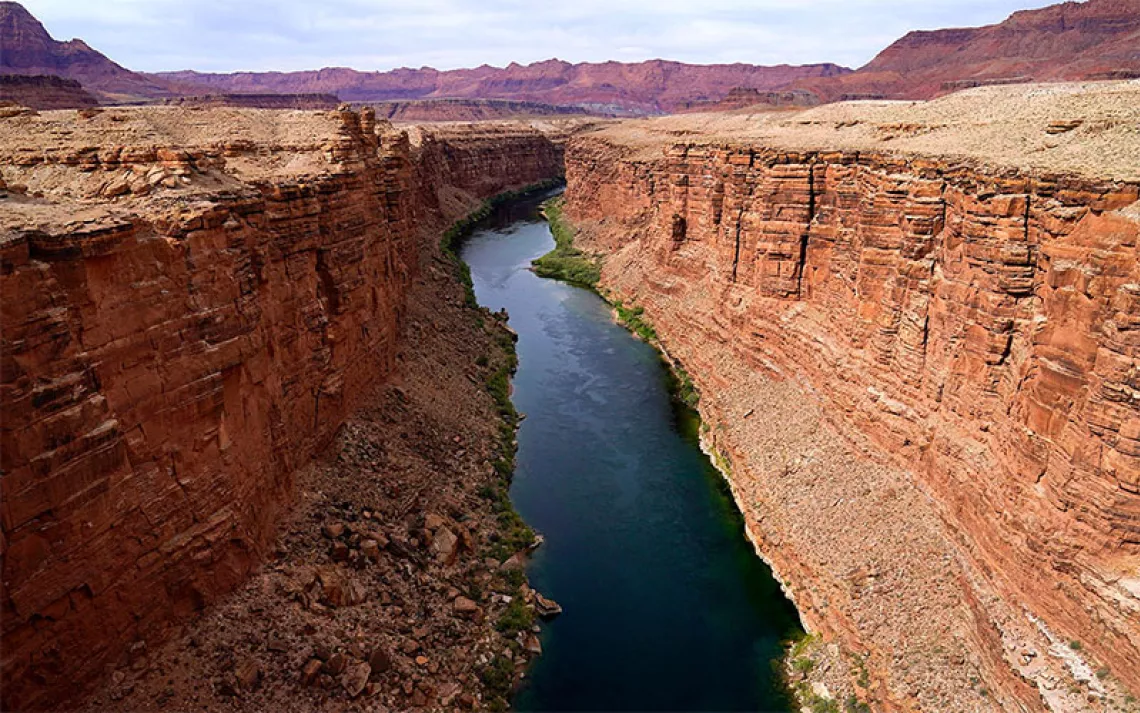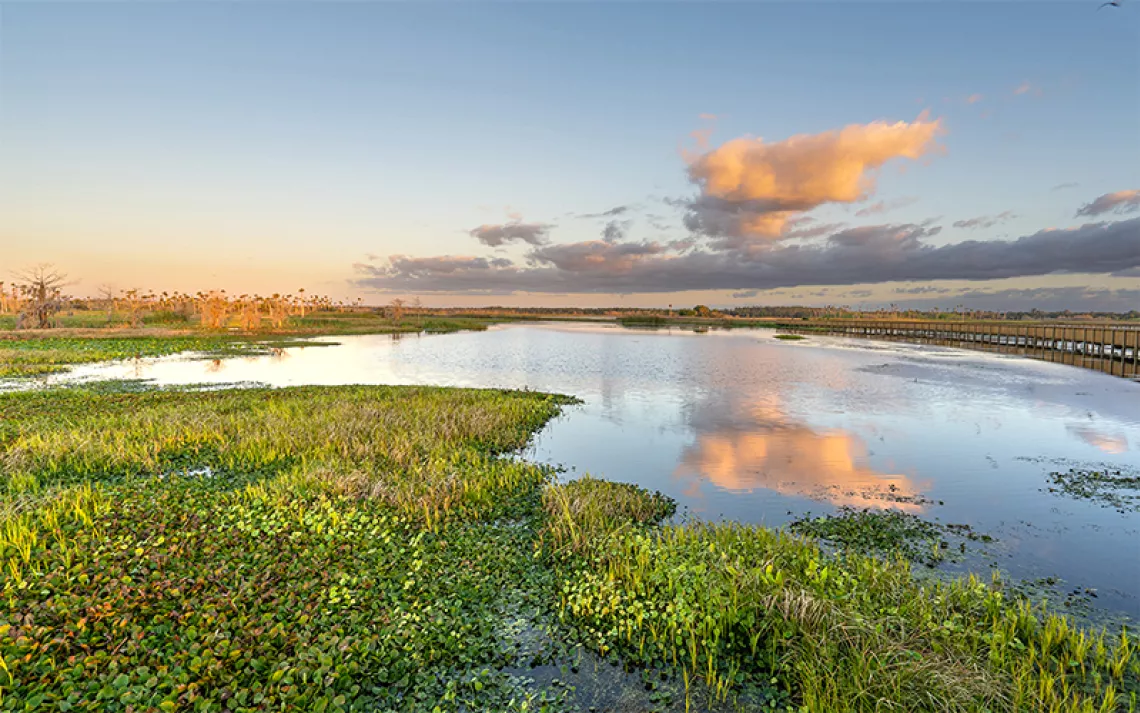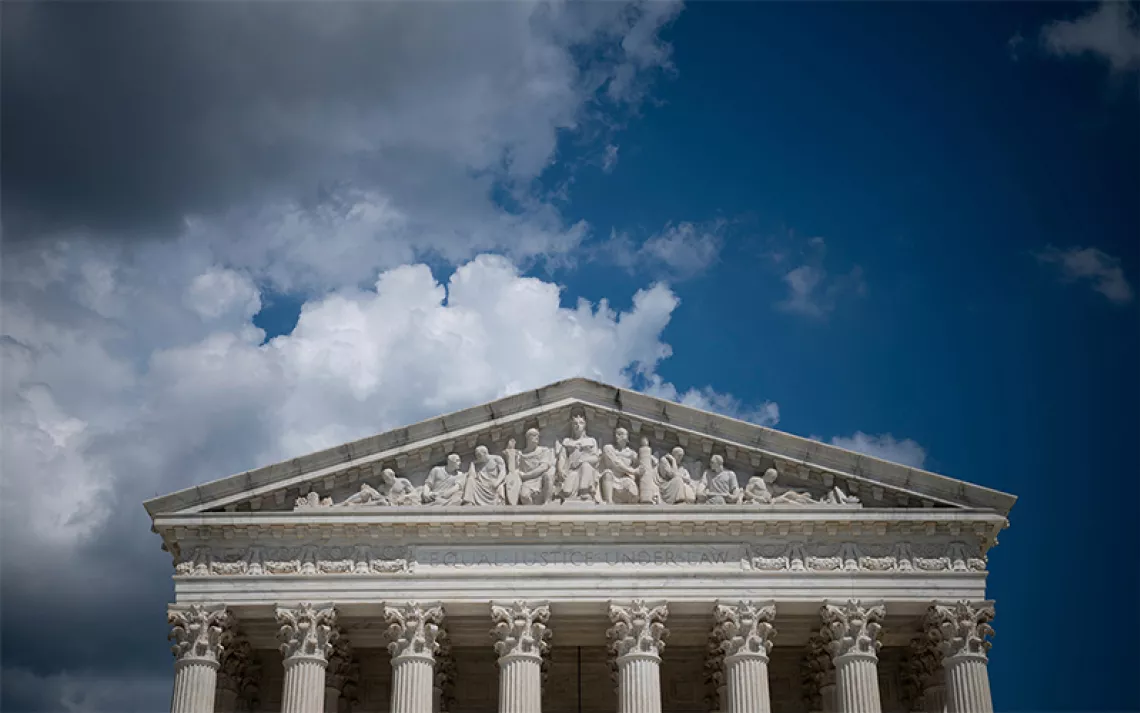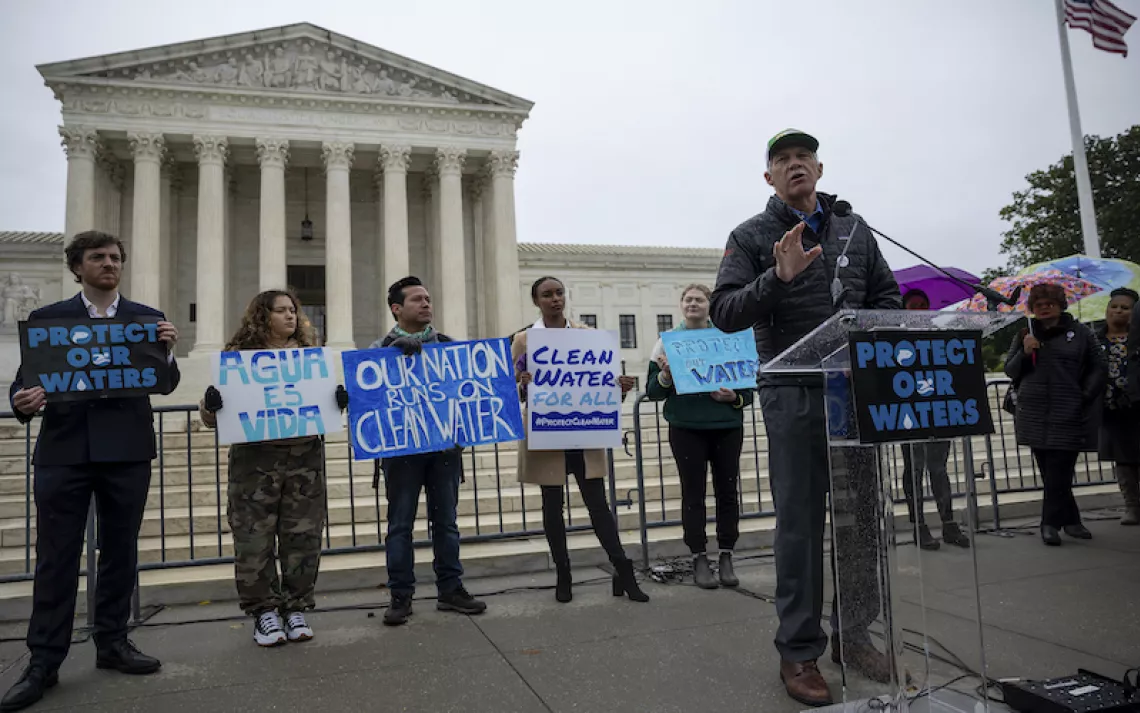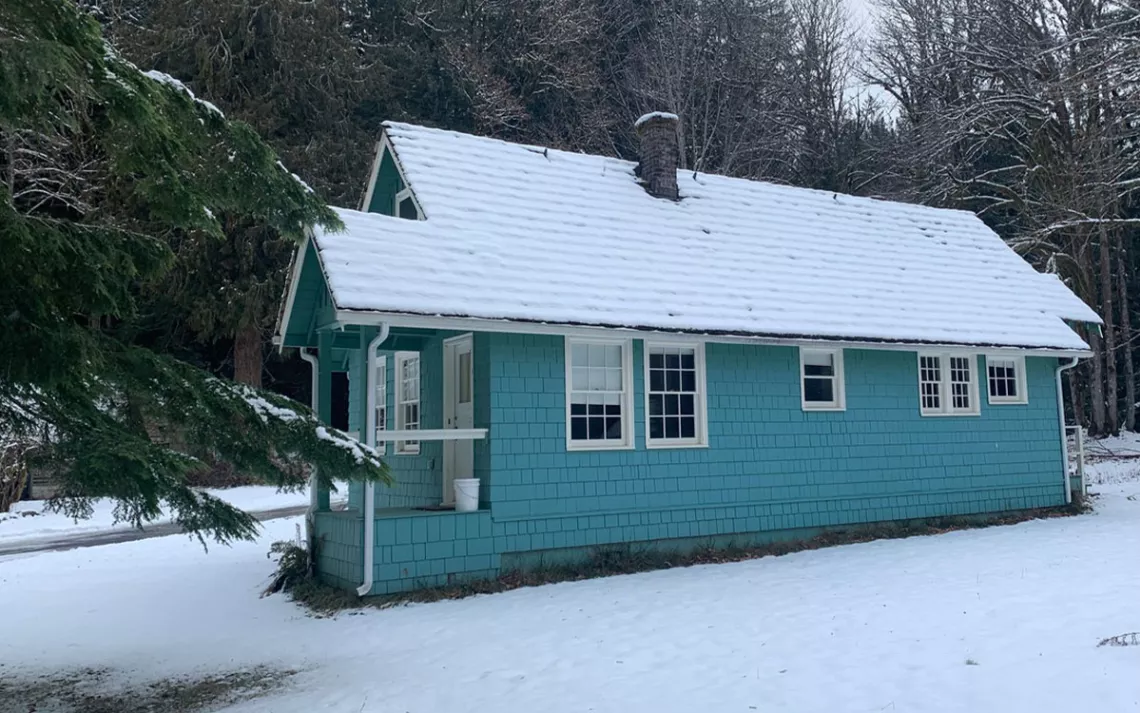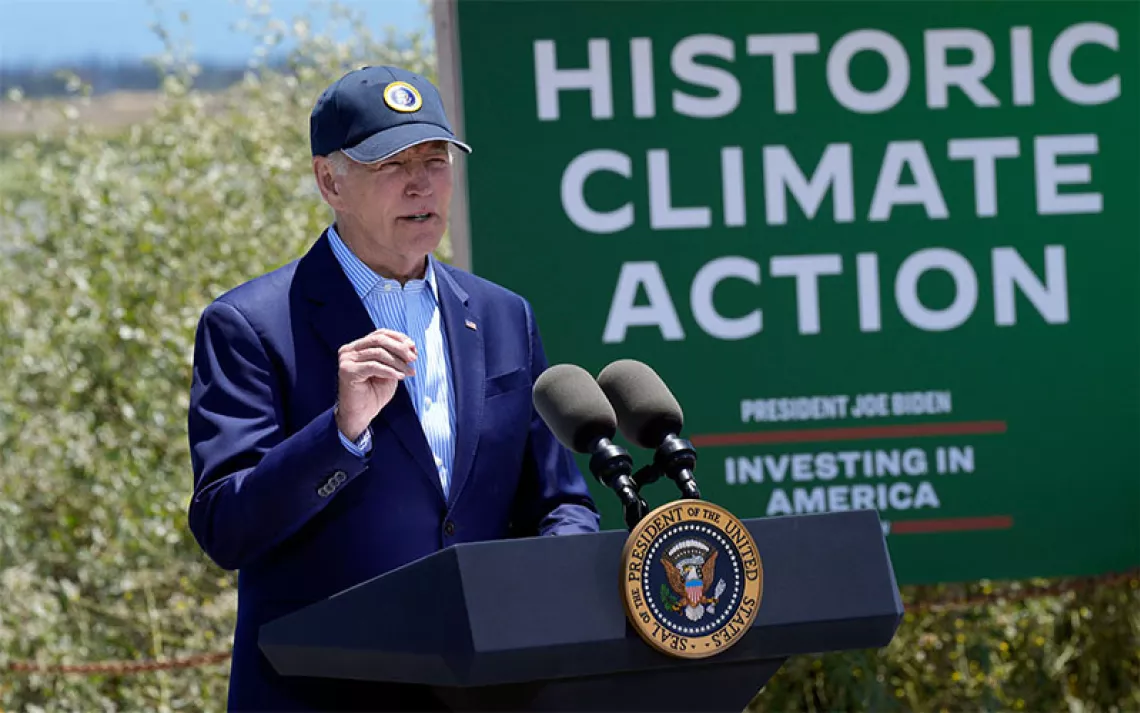Supreme Court Hears Arguments in Landmark Climate Change Case
Oil companies stick to procedural delay as the planet runs out of time
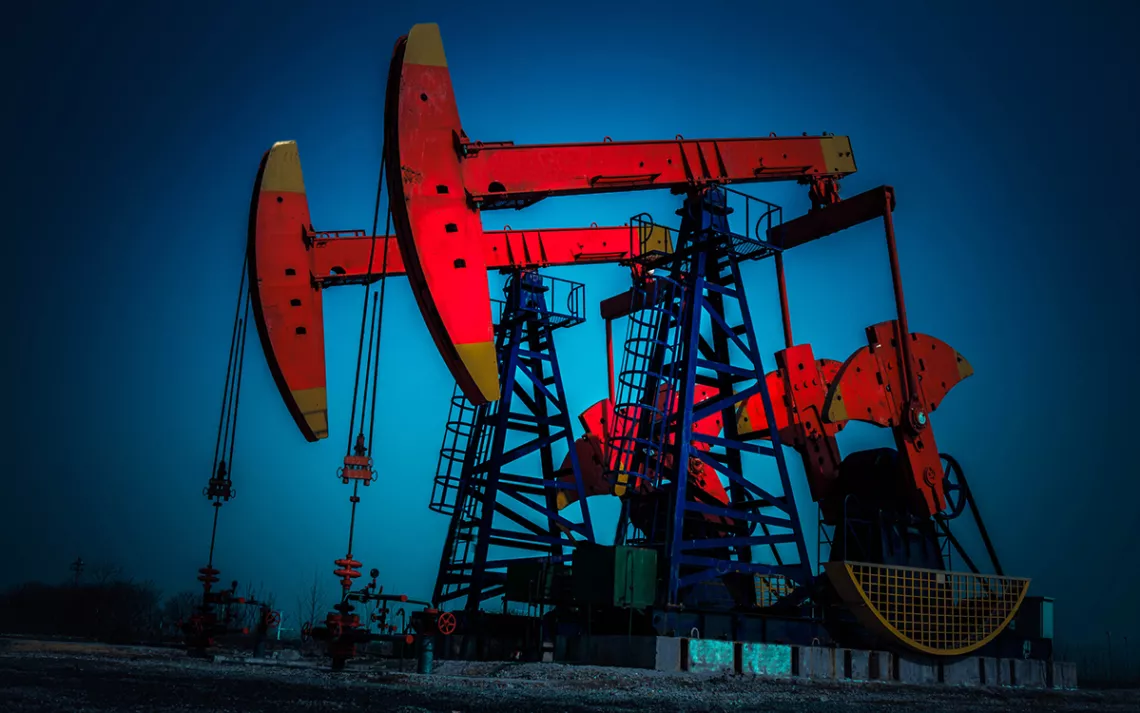
Photo by chengwaidefeng/iStock
What relief can American courts provide to states, counties, and cities? That’s the question at the center of more than 20 lawsuits filed in the past three years, alleging that reckless and deceptive business practices by the major oil companies contributed to climate-related destruction and must be paid for. When the US Supreme Court heard arguments in one of those cases on January 19, the justices focused on arcane procedural matters and avoided the bigger issues—leaving in doubt the fate of the many lawsuits seeking some measure of corporate accountability for the effects of the climate crisis.
Since the first local lawsuits against the oil giants were filed in California in September 2017, the defendant corporations—a rogue’s gallery of carbon barons that includes ExxonMobil, Chevron, Shell, and BP—have sought to have the cases moved from state courts to federal courts. Plaintiffs including Rhode Island, Minnesota, Boulder, Colorado, and Hawai'i’s Maui County have brought basic tort claims under their state laws that prohibit nuisance behavior, deceptive business practices, and consumer fraud. But the oil corporations consider the federal courts a more favorable forum—and for good reason. On the one occasion in which the cases were moved to federal court (in a complaint filed by San Francisco and Oakland), a federal district court judge tossed the suits, arguing that climate change is a matter best left to Congress.
Otherwise, the oil companies have flopped when seeking a change of venue. Four US appellate courts have rejected the oil corporations’ arguments to remove the cases to federal courts. The Fourth Circuit slapped the defendants’ demand with a terse, “They are wrong.”
The corporate defendants appealed that case, arguing that the appellate court’s reasoning was too narrow. And that’s how BP v. Baltimore came before the Supreme Court on Tuesday, with the justices considering the rather esoteric question of what bases a federal appellate court can use to review cases that have been removed from state courts to federal ones.
“The issue on which the Supreme Court granted cert [agreed to hear the case] is a very technical issue that only federal civil procedure nerds would be interested in,” Karen Sokol, a law professor at Loyola University of New Orleans who has followed the climate tort cases closely, told Sierra. “There are certain limited bases on which a defendant can remove a case to federal court. The reason removal is the exception is because of the fact that states, under our constitution, retain a significant amount of powers.”
Federal civil procedure nerds were not disappointed. A great deal of the 75-minute-long court session revolved around questions like how Congress intended to use the word “order,” the meaning of “pursuant to,” and, in the words of one attorney, “that big gray area between frivolity and meritless.” While the attorney for the corporate petitioners sought to make a case for giving appellate courts broader latitude in the grounds for removing a case to federal court, the lawyer arguing on behalf of Baltimore sought to narrow the appellate court’s “scope of review”—and keep the case in the Maryland court.
Beyond the arcana of judicial procedure, BP’s attorney, Kannon Shanmugam, also made a play to get the justices to go beyond the particulars of the case and to simply send Baltimore’s claim—and all the other 20-plus lawsuits—to federal court. “This Court's precedents dictate the commonsense conclusion that federal law governs claims alleging injury caused by worldwide greenhouse gas emissions,” Shanmugam said.
According to some legal observers, this has been the oil companies’ ploy all along: to use a Supreme Court hearing on a technical matter to leapfrog to the question of venue, and then to get the cases dismissed. “Basically, the fossil fuel industry defendants are fighting so hard to get this into federal courts because they expect they will get the federal courts to buy into their arguments,” Sokol said. “They have made the courts fear dealing with the climate crisis. But these claims are only asking courts to do what they have for decades, which is to hold corporations accountable for deceptive marketing and to pay damages. ”
Sean Hecht, coexecutive director of the Emmett Institute on Climate Change and the Environment at the UCLA School of Law, listened to the Tuesday arguments and spotted the same strategy. “The one thing I noticed is that the petitioners [BP et al] tried to invite the court to find that federal law applies to the whole case, and then to reverse the appeal entirely,” Hecht said. “That is their attempt to cut the heart out of all of these cases, which is for the court to reach out beyond the [appellate court] decision, and [to decide] that state law doesn’t apply, and federal common law applies.”
For the most part, the justices didn’t bite. Justices Brett Kavanaugh and Clarence Thomas were the only members of the court to really address the issue. At one piont, Kavanaugh asked the corporate defendants, “Why do you want to be in federal court rather than state court?” and then later posed a similar question to Baltimore’s lawyer. “You really want to be in state court. Why?”
Vic Sher, a veteran environmental litigator who was arguing for Baltimore, responded, “There is no federal claim to assert here, Your Honor. . . . The conduct complained of is fraud, deception, denial, and disinformation, and those are traditional state foci and traditional state remedies.”
The Supreme Court will rule on the case sometime this spring. There are several possible outcomes. The justices could uphold the appellate court decision, which would keep the case in Maryland courts as the City of Baltimore wishes. They could rule narrowly in favor of BP’s arguments on the technical procedural issues and direct the appellate court to rehear the case. Or, they might do the corporations’ bidding and send all the climate tort cases to federal court.
The way attorney David Bookbinder (who once worked as a Sierra Club lawyer) sees it, “I think there is very little interest in taking the companies up on their offer of saying, ‘Hey, while we’re here why don’t you rule on the merits and declare all of these cases to be federal.” Bookbinder is now general counsel at the Niskanen Center, a libertarian-leaning think tank that is providing legal advice and assistance to the three Colorado jurisdictions that sued ExxonMobil and Canadian oil company Suncor. “As for the provision in front of them, I think they are split on their view of whether what Baltimore is saying makes sense. I find it difficult to count noses after this one.”
Another possibility, Bookbinder says, is a four-four split. (Justice Samuel Alito recused himself from the case, reportedly on the grounds that he owns stocks in some of the defendant corporations. Some environmentalists called for Justice Amy Coney Barrett to recuse herself as well, since her father was an attorney for Shell Oil. She declined.) In the case of a tie decision, the Fourth Circuit Court of Appeals ruling would stand—but it wouldn’t set precedent. Since the Supreme Court may very well agree to hear an ongoing appeal from the Colorado cases, Bookbinder said, “then we would do the whole thing over again.”
Whatever happens, the carbon barons have already notched a victory of sorts. When it comes to evading responsibility for their actions, the oil companies rely on deflection and delay. The procedural debate at the Supreme Court was part of the industry’s tested legal playbook: Throw sand in the judicial machinery, litigate every last technicality, and use their huge wealth and phalanxes of attorneys to grind down the opposition. At one point during the hearing, Baltimore’s attorney Sher said, a note of exasperation in his voice, “we've been three years in limbo between the federal and state courts.”
Delay might suit the needs of the oil companies. But the planet and its inhabitants don’t have time to spare.
This article has been updated since publication.
 The Magazine of The Sierra Club
The Magazine of The Sierra Club
